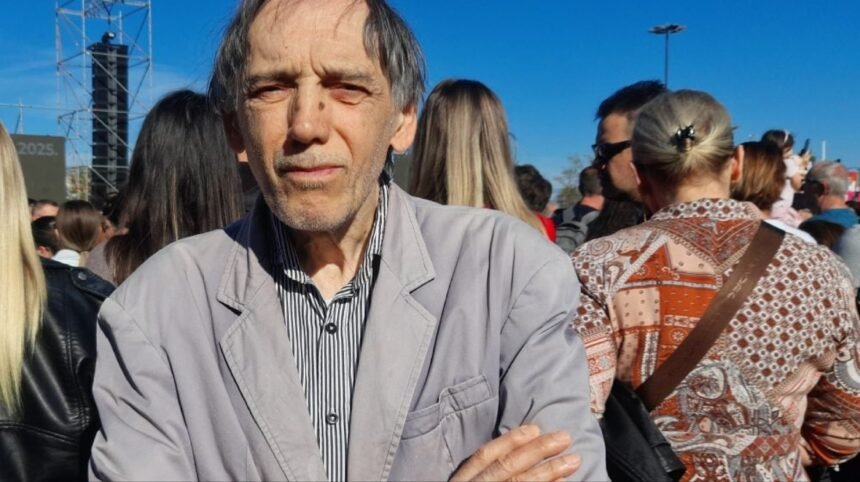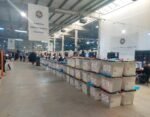The renowned writer, poet, and musician from Novi Sad, Slobodan Tišma, has delivered a powerful message of defiance and hope in the wake of the tragedy that struck his city one year ago. In an interview with Danas, Tišma accused the Serbian government of moral decay and criminal governance, stressing that the nationwide movement sparked by students can no longer be contained.
“My heart is filled with the struggle of the students — from Novi Pazar to Novi Sad — who walked sixteen days to honor the victims and to awaken us from this swamp of fear and silence,” Tišma said. “Their courage has given us strength and optimism in our fight for justice.”
A City Changed Forever
Yesterday’s commemoration in Novi Sad marked one year since the collapse of the railway station canopy that killed sixteen innocent citizens — a tragedy that many believe symbolizes the corruption, negligence, and impunity of those in power. Artists, students, and citizens from across Serbia gathered to pay tribute to the victims and to demand accountability.
Tišma noted that Novi Sad “has not been the same” since that day. The city, he said, has become both a site of mourning and a birthplace of resistance.
“After a year since the murder of sixteen people, I feel tragic but also inspired. The horror we experienced awakened courage, strength, and hope in people. We rose from the bog in which this regime has kept us for years,” he stated.
“This gathering showed that Serbia has another face — one without fear, built on morality and compassion. And there are many of us, more than they can imagine.”
“They Defend Themselves with Our Blood”
Tišma condemned the government’s reaction to the growing protests, accusing the ruling elite of clinging to power through “criminal and dirty means.”
“This government has its own philosophy — one that thrives on lies, violence, and fear. They have no second chance; they will defend themselves to the last drop of our blood,” he warned.
While he hopes for a peaceful transition, Tišma cautioned that the regime may resort to orchestrating internal conflict to preserve its rule.
“We must hope that their downfall ends without bloodshed. But knowing their history — the violence and deceit of these same people since the 1990s — the danger of conflict is always present.”
Youth as the Moral Compass
In Tišma’s view, the young people of Serbia represent the nation’s last moral stronghold. For decades, he said, the youth have fled abroad in search of dignity and freedom, refusing to live “in this mud and darkness.” Yet, the students who now lead the protests have chosen to stay — to fight, not flee.
“The students have been protesting tirelessly for a year. They don’t want to run away from their country — they want to change it. It would be a crime if these children have to die for demanding a normal society. We must stand by them. It is a moral and human duty.”
He urged citizens not to surrender to apathy, calling this uprising a historic chance to end autocracy in Serbia.
“We live under the law of the stronger, in an autocracy that has stolen our future. But this time, we must not miss the opportunity the students have opened for us.”
From Tragedy to Defiance
Tišma, laureate of prestigious literary awards such as the NIN and Biljana Jovanović, drew a personal connection to the tragedy. His most recent novel, Bass Guitar Genius, is set on the same boulevard where the fatal collapse occurred — a chilling coincidence that continues to haunt him.
“I live two hundred meters from the railway station. Every day I look toward that place, and I think of the sixteen people who left their homes with plans and hopes — and never came back. Their deaths must find justice, and we must reclaim our humanity by ending this regime.”
For Tišma, the rally in Novi Sad was not just a commemoration, but a turning point — a declaration that the spirit of resistance is alive and unstoppable.
“This front against the government is indestructible,” he concluded. “Every act of repression only makes us stronger. No force can stop what has begun.”







